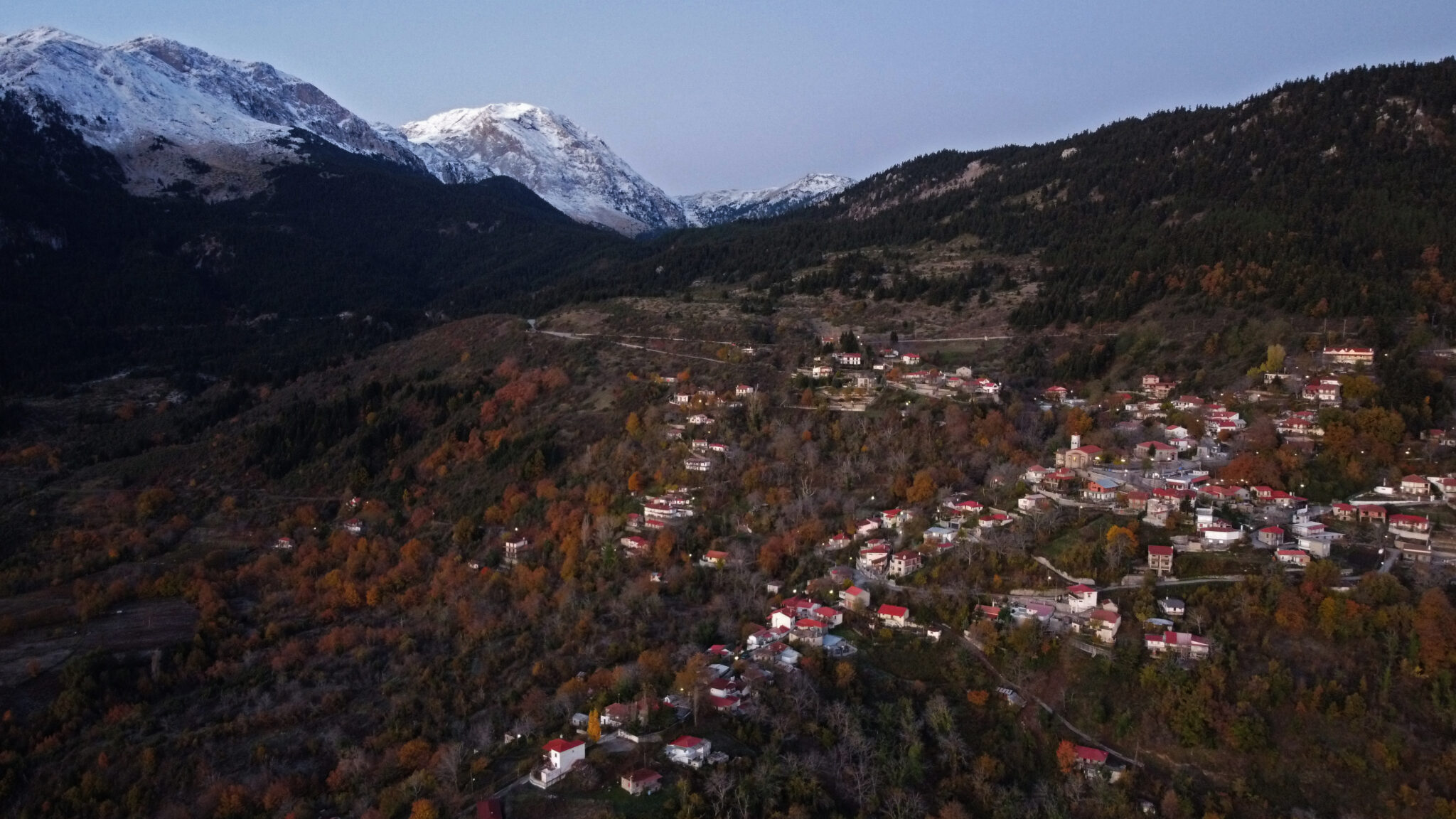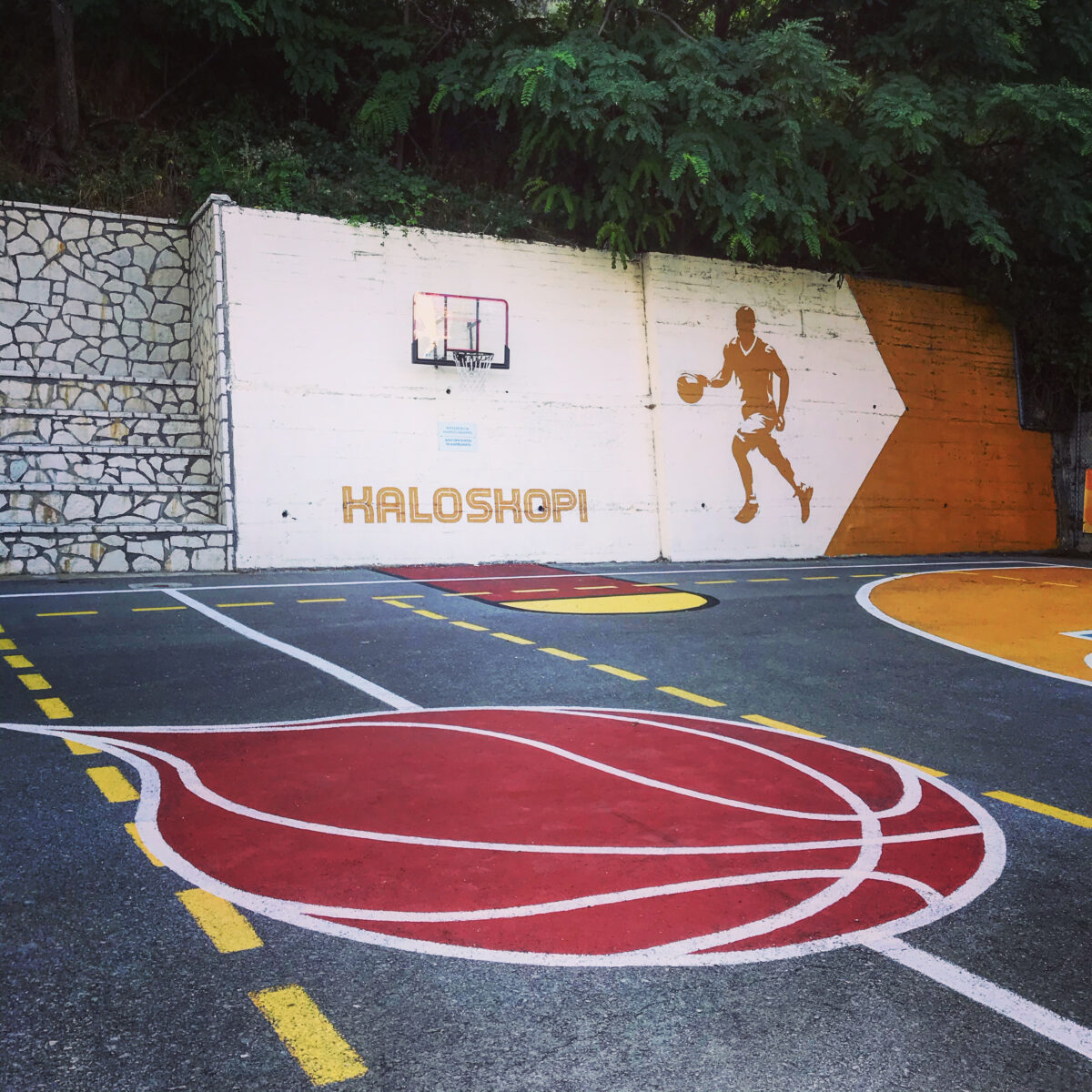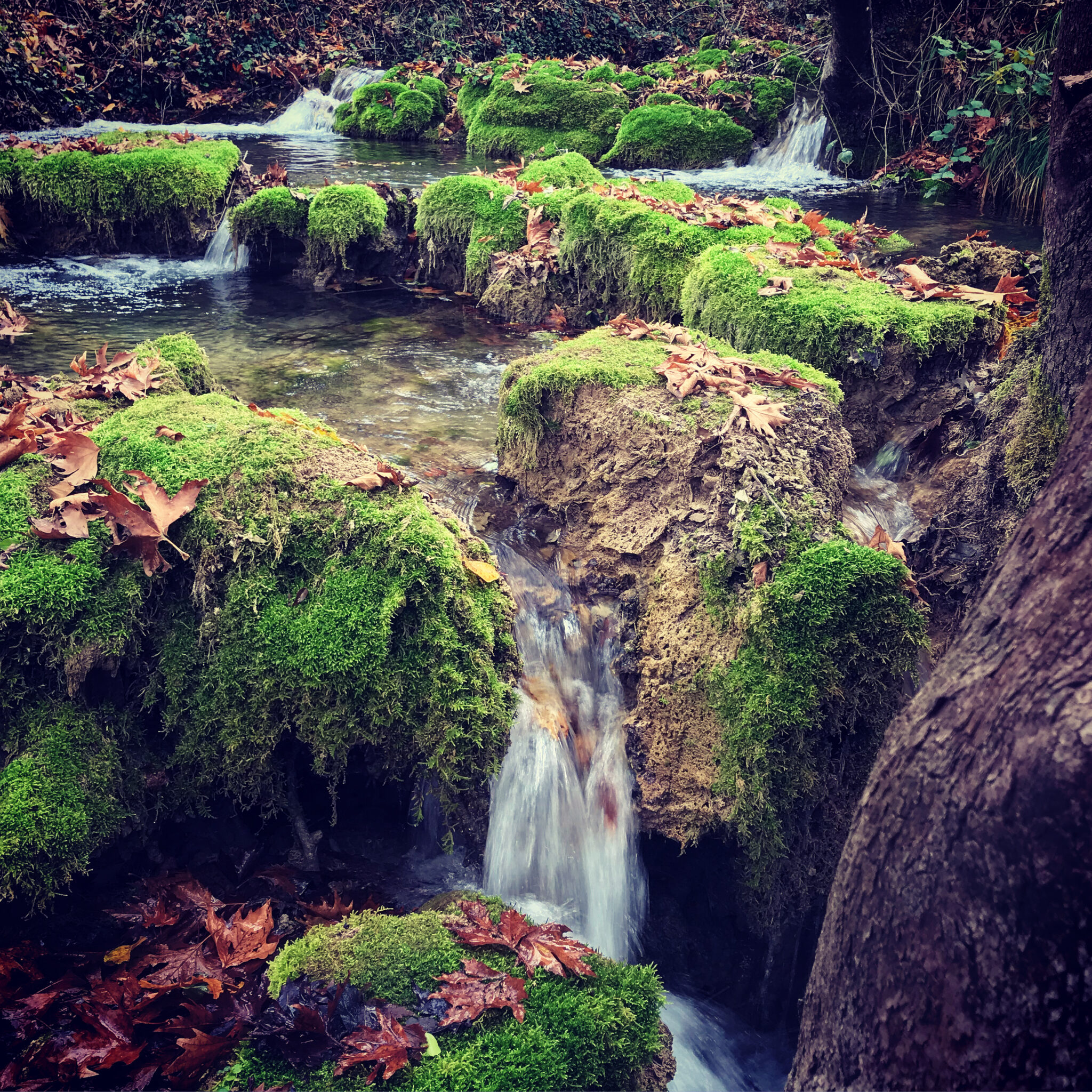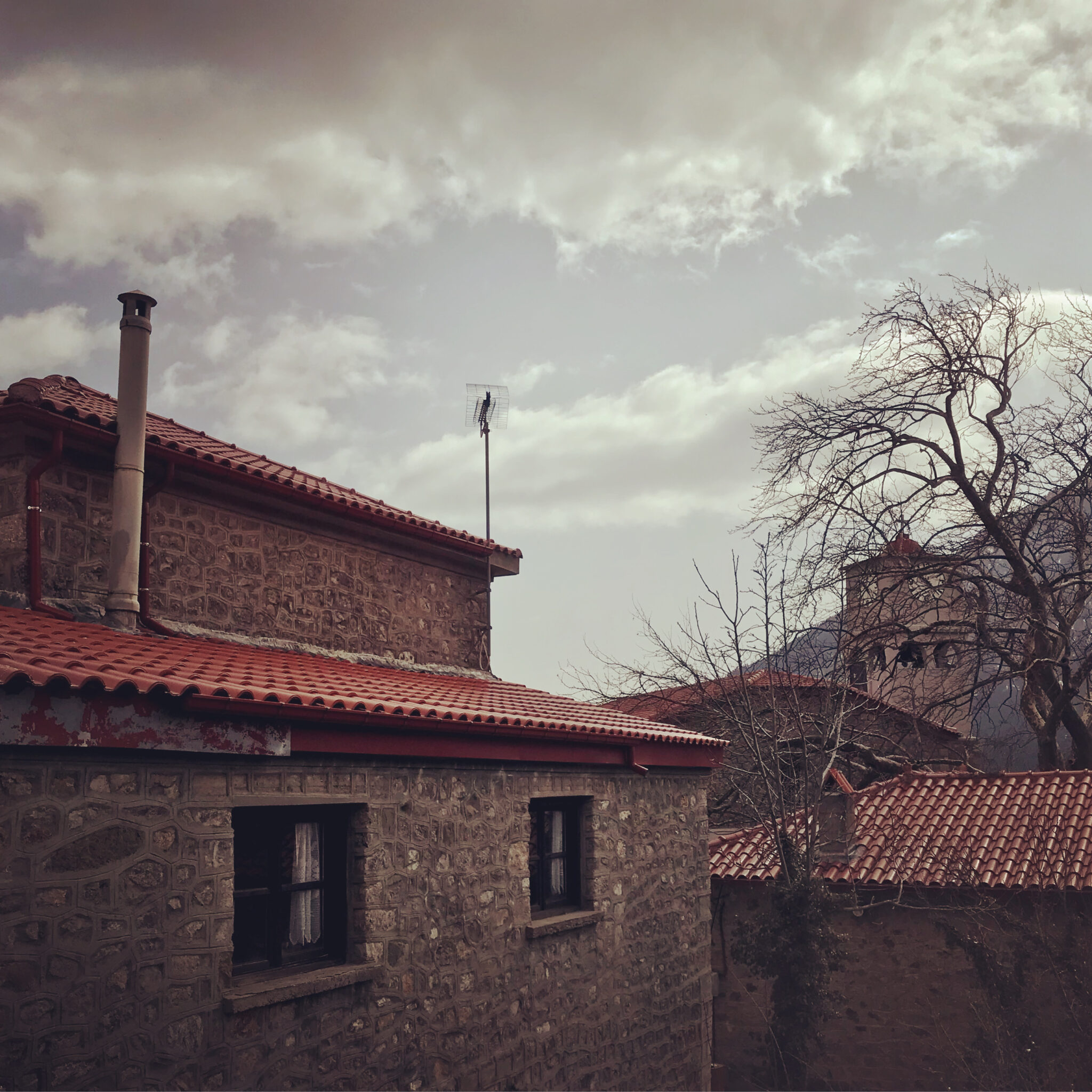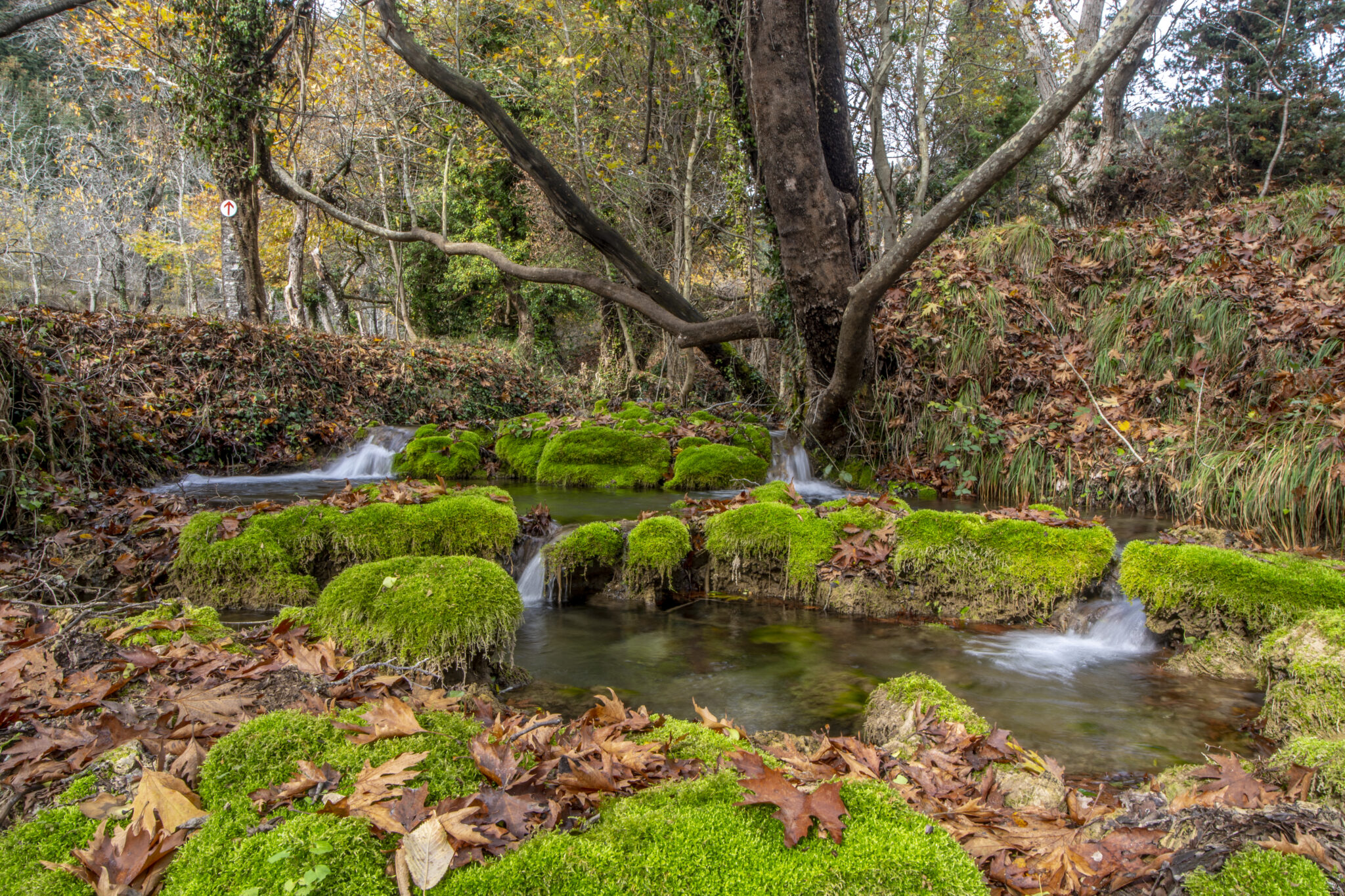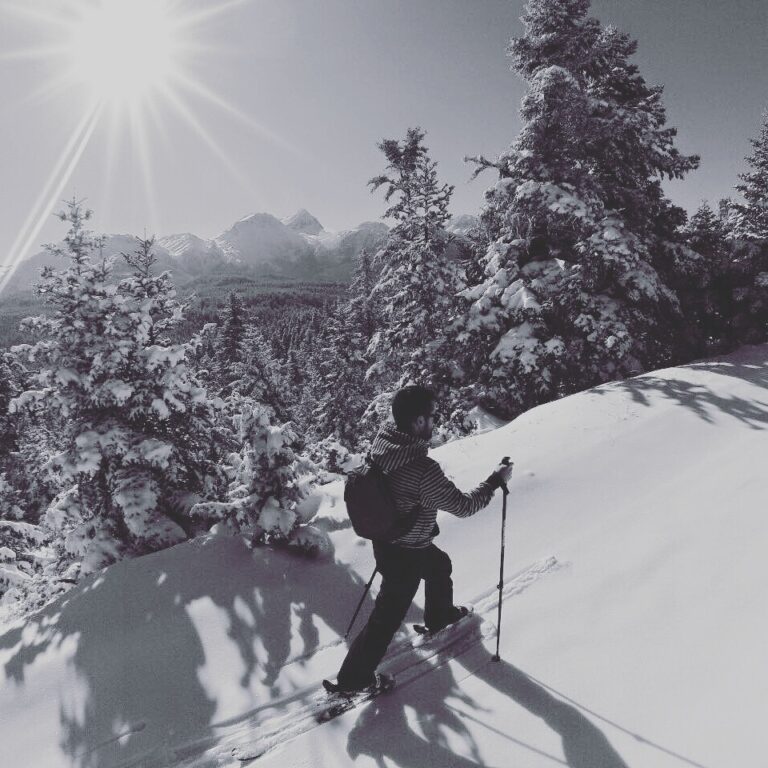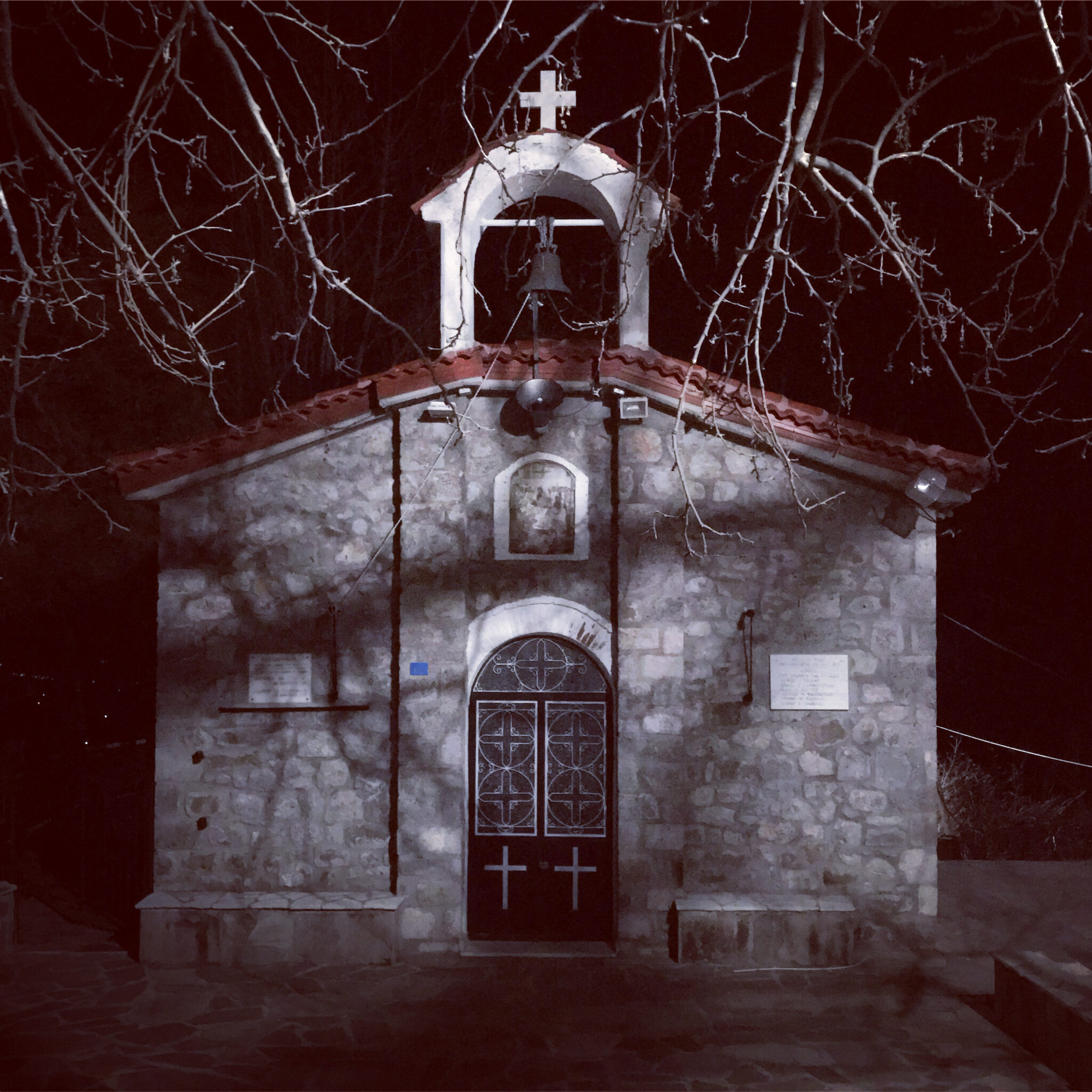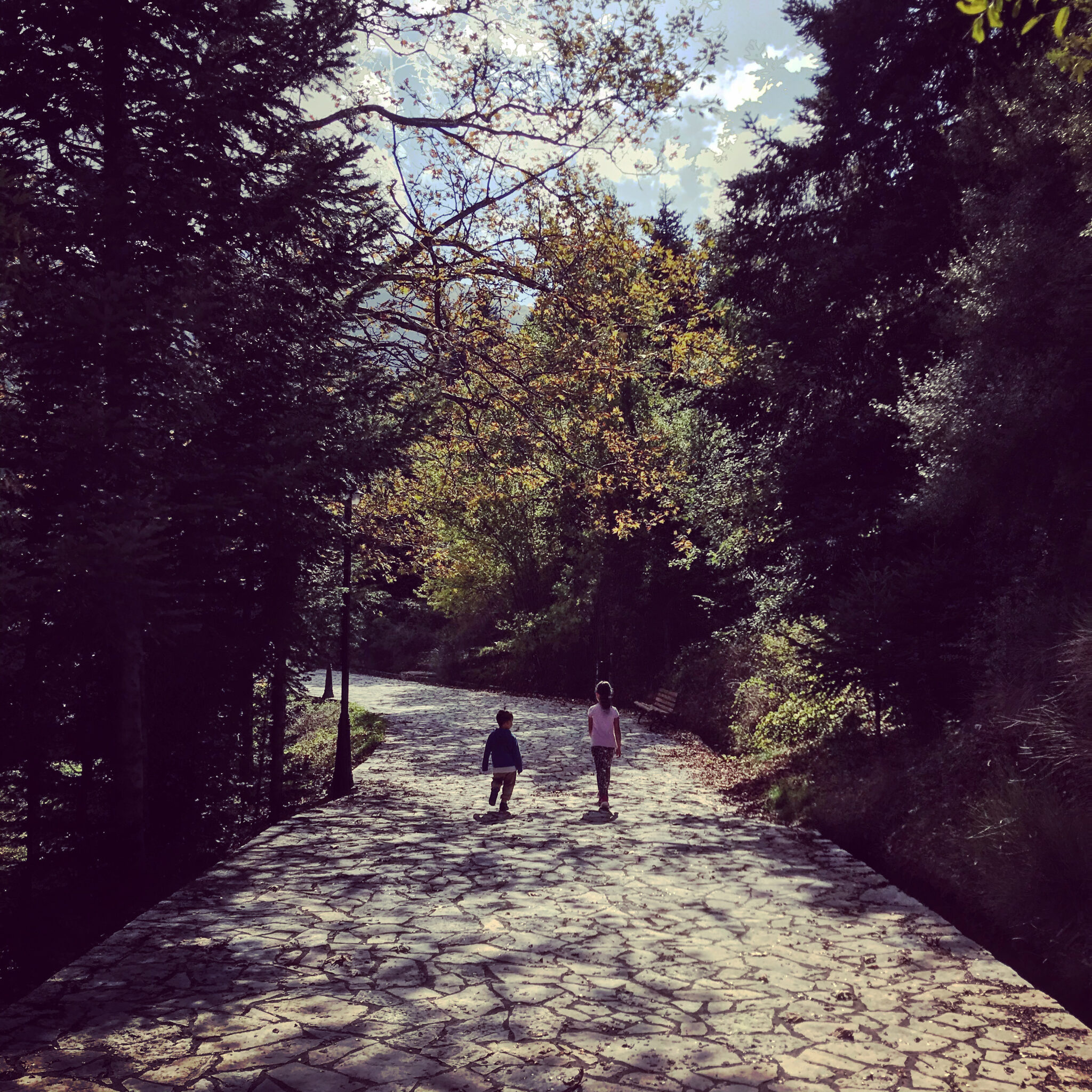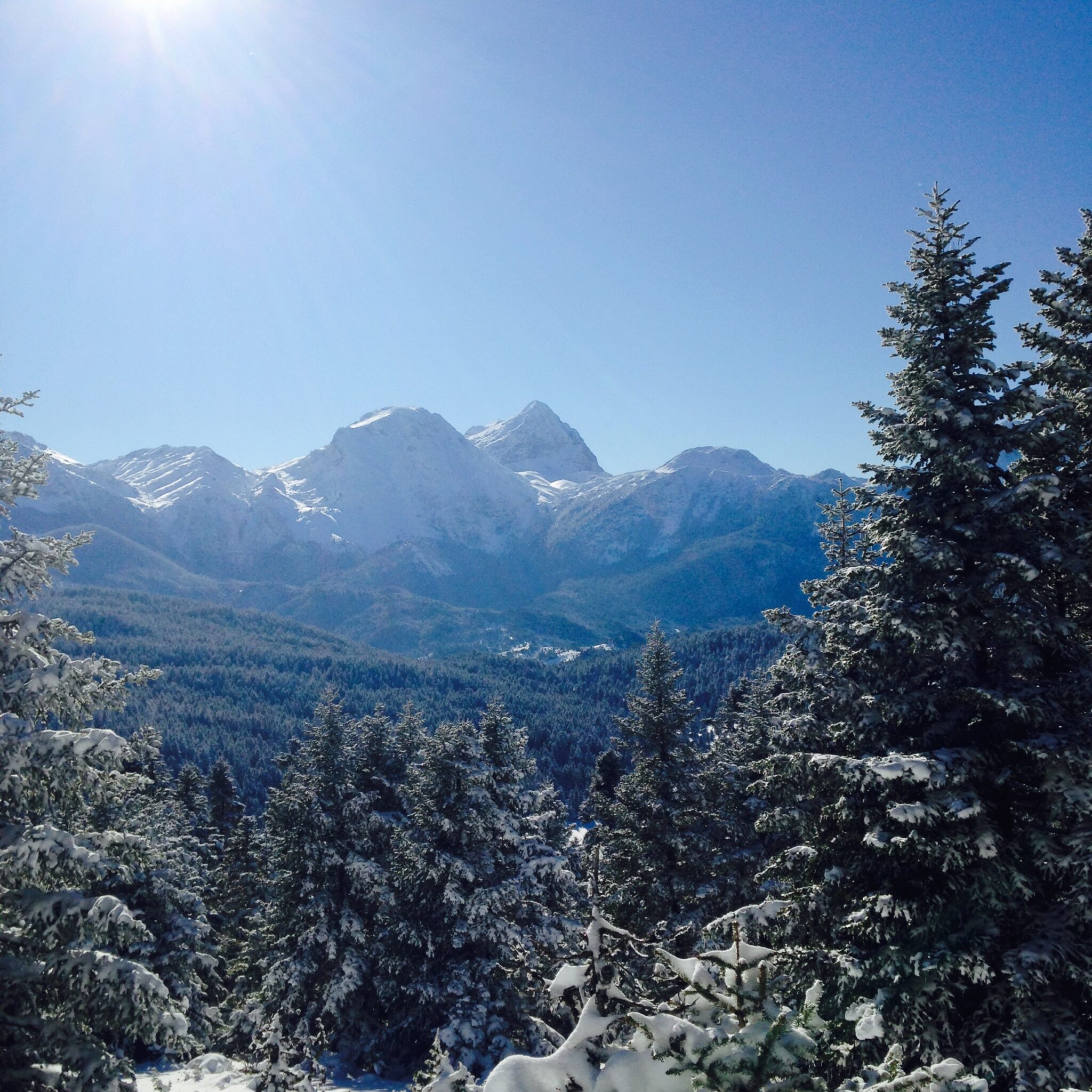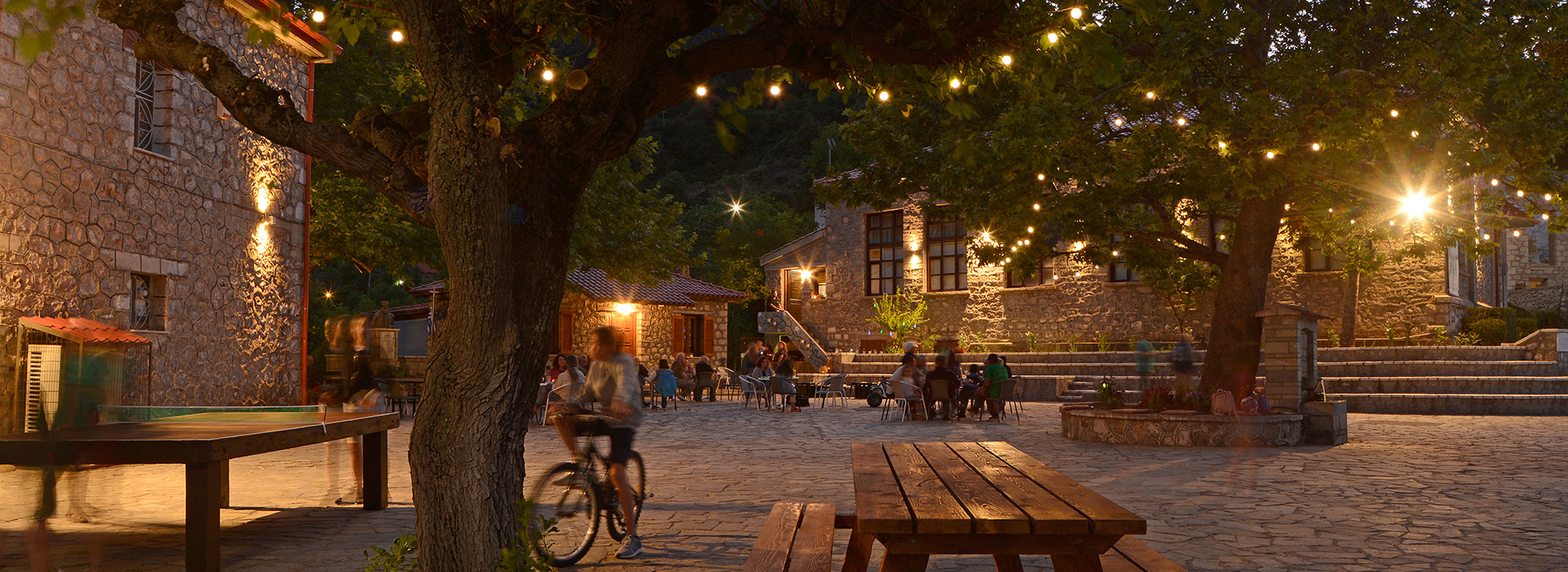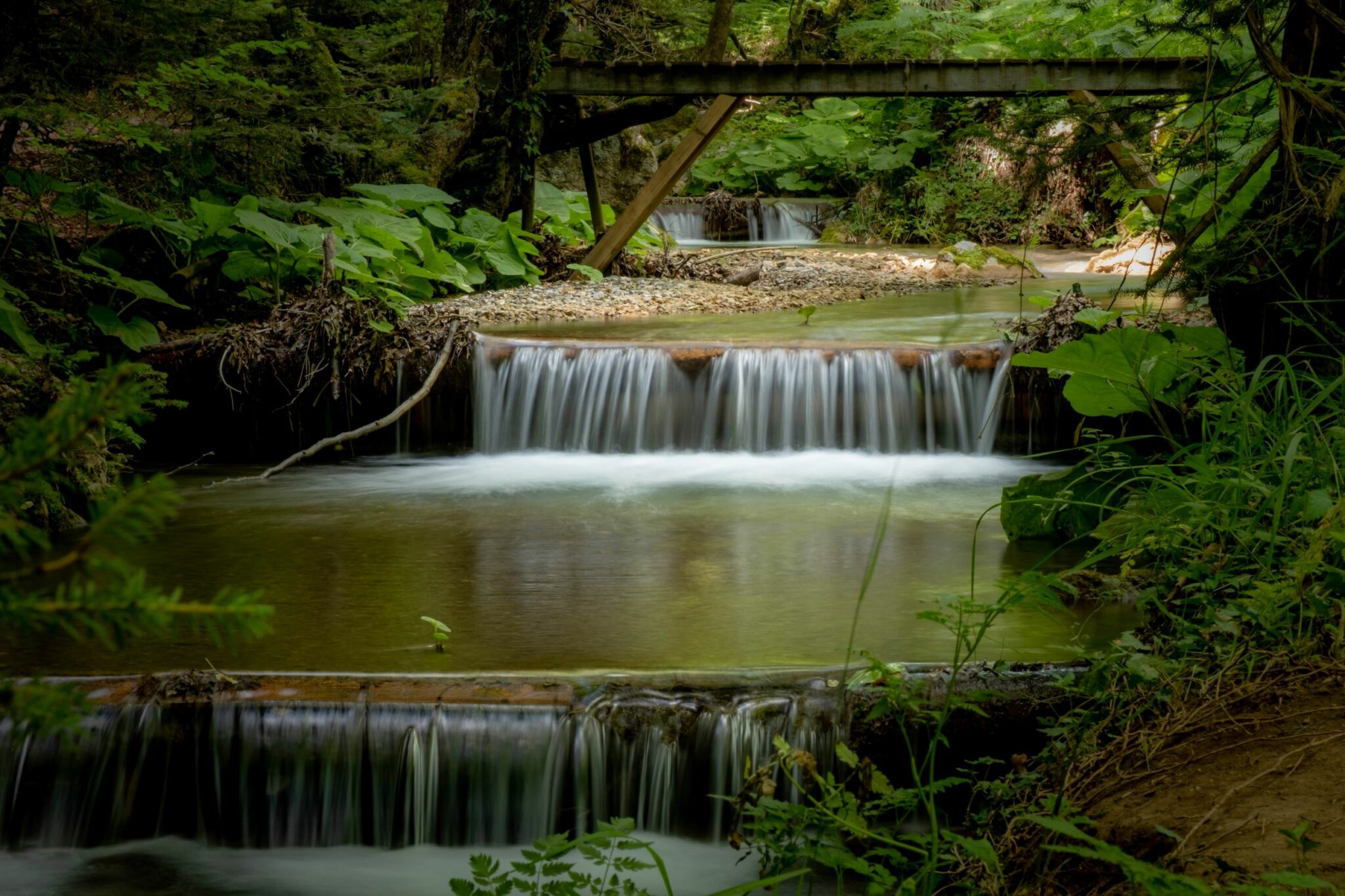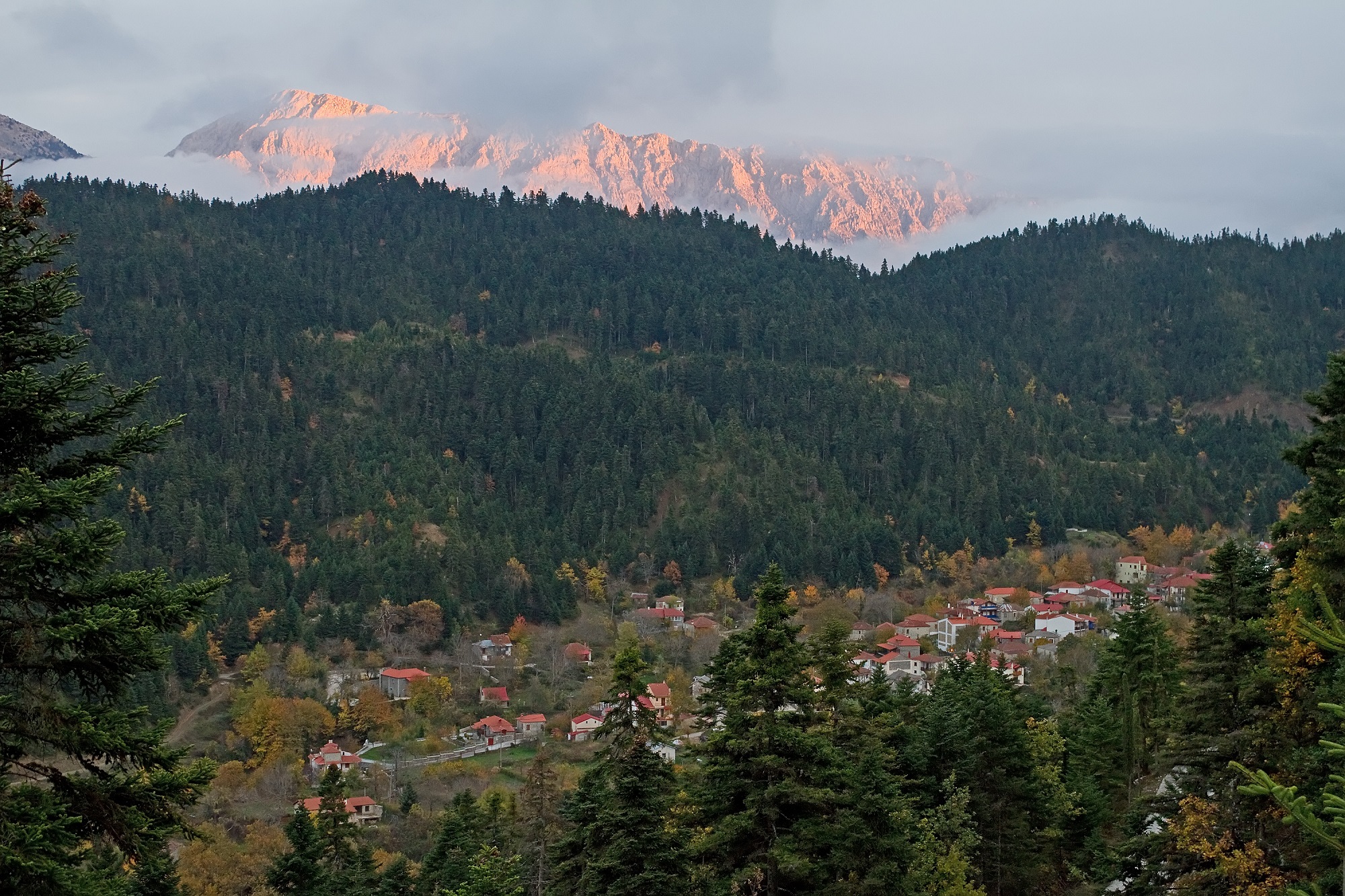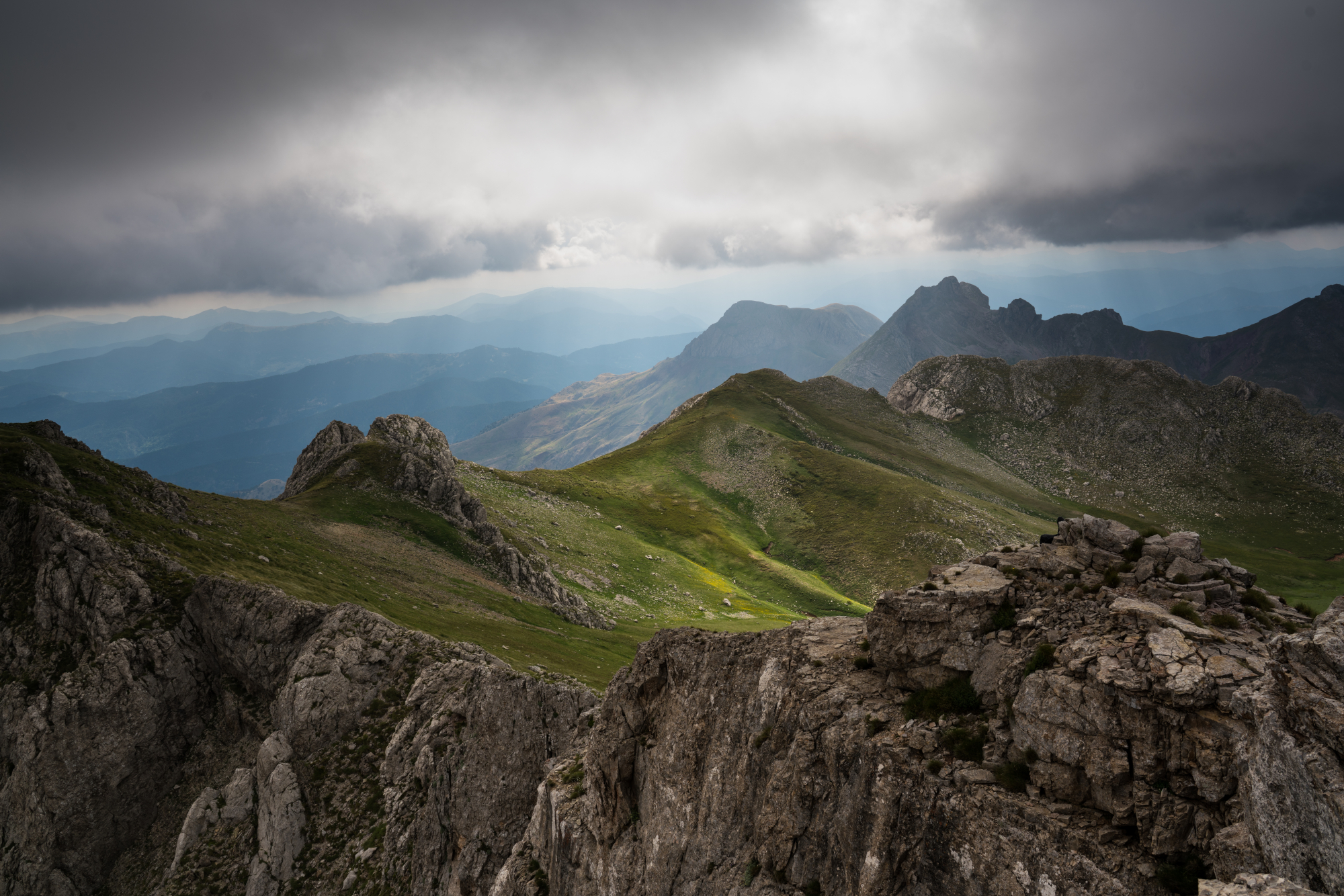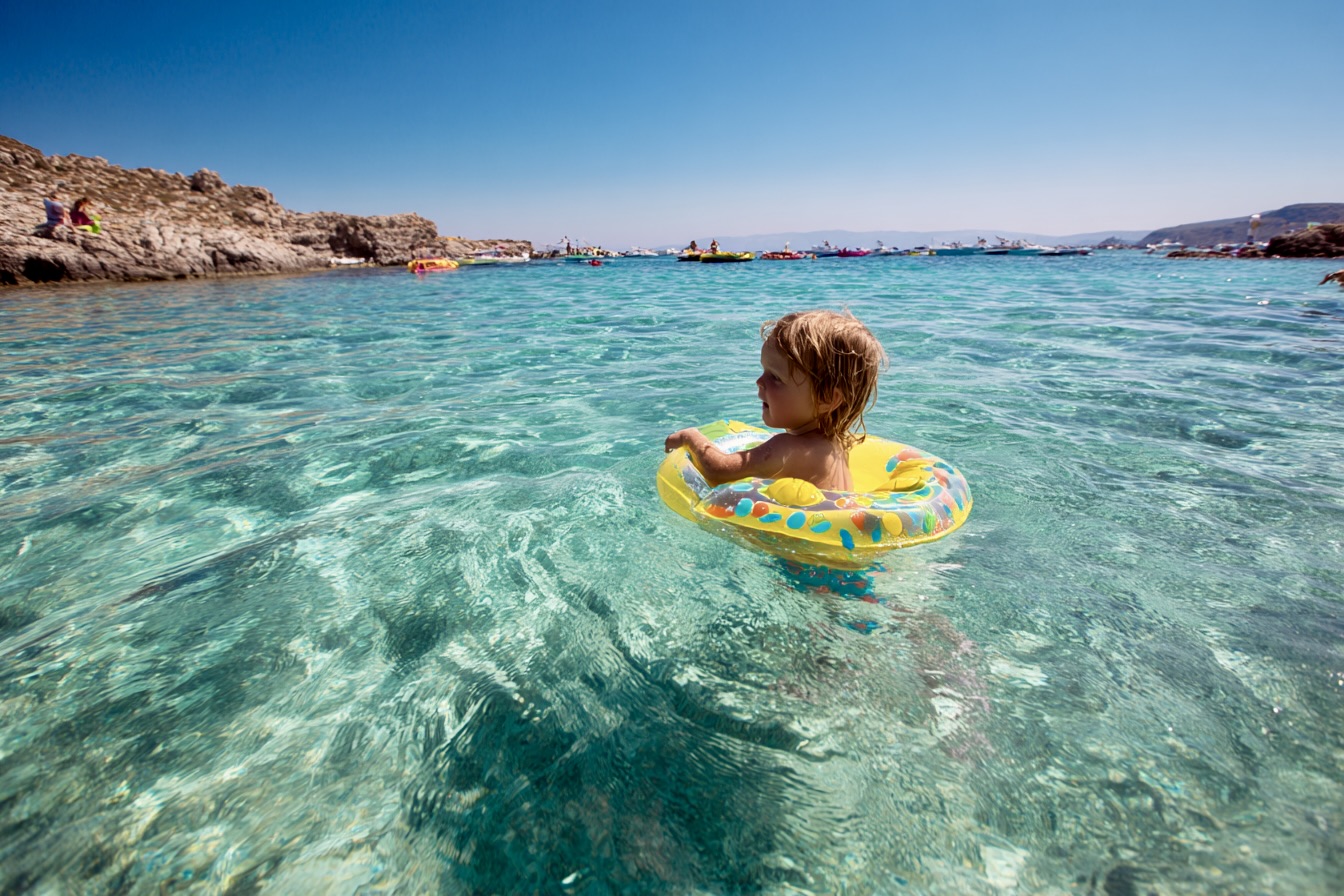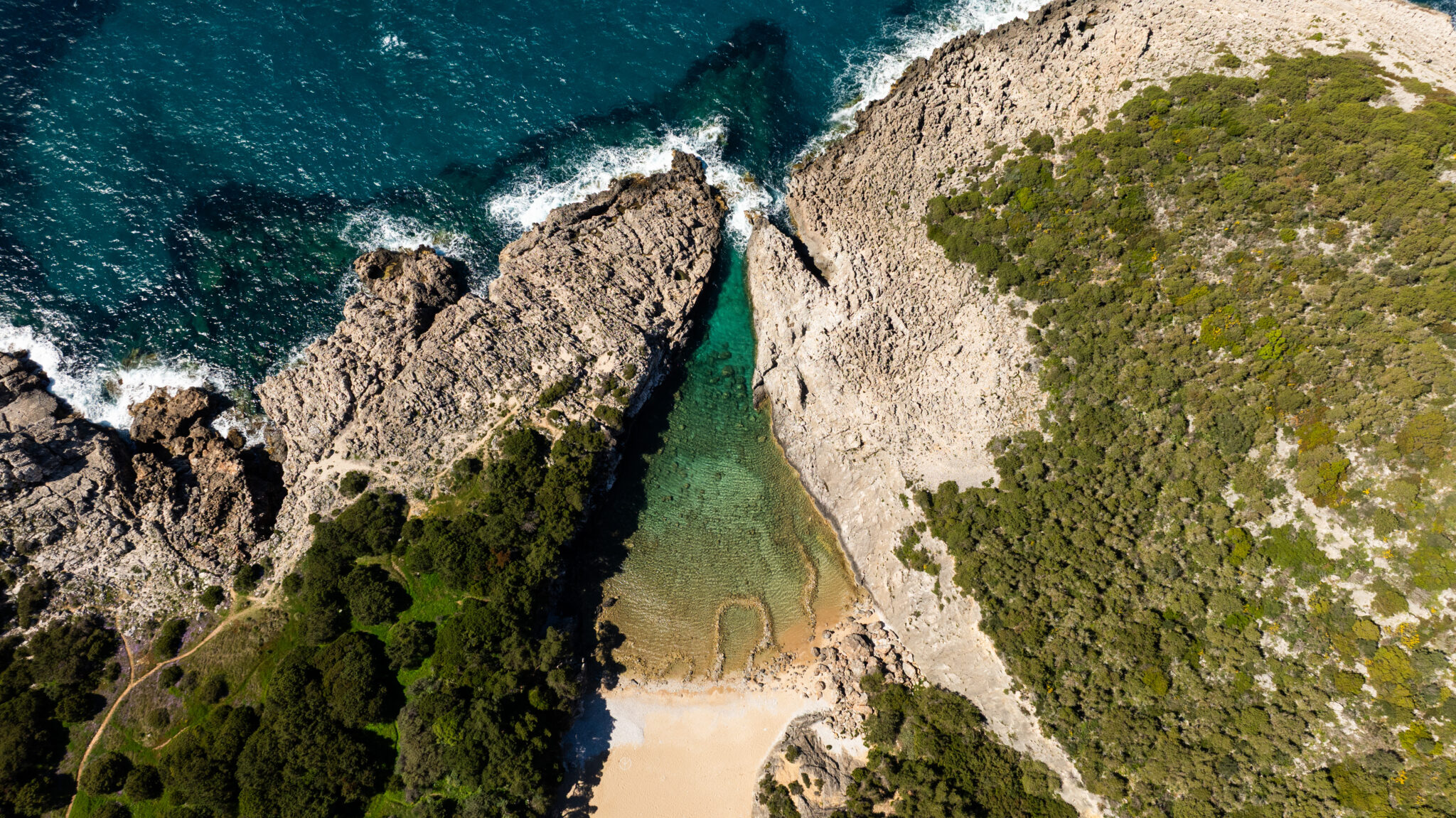Kaloskopi, a mountain village in central Greece’s Fokida area, 1,100 metres above sea level, is situated on the slopes of Mount Giona, the country’s fifth tallest mountain, its highest peak at 2,510 metres.
Kaloskopi possesses many features that typify a large number of villages in Greek mountain areas such as elegant stone houses and marvellous nature, which, in this village’s case, features apple, plane, walnut and cherry trees, as well as many river sources with running water. However, despite the obvious beauty, the location’s harsh winter conditions, as well as the attraction of urban living for locals over the past few decades, prompted a gradual outflow of Kaloskopi’s population.
At one time, the village population had reached over 1,000, but, nowadays, the number of permanent residents, all year round, has been decimated to less than fifty. Kaloskopi has been left without a health clinic or shop stocked with essentials.
In 2019, a group of people with family roots in Kaloskopi decided to revamp the village basketball court. This initiative’s impressive result gained considerable publicity in the wider area as well as on social media platforms. “So, we decided to slowly move further ahead with a more organised effort and attempt to revitalise our village, bring back working-age people, and encourage these people to not abandon the place during the winter months,” explained Stratos Aktidis, an entrepreneur who is involved in the local rebirth effort, dubbed Kaloskopi Restart.
Initially, all initiatives were offered on a voluntary basis, but this proved to have its limits, prompting the need for a more formal effort, as a social cooperative enterprise, which led to the establishment of Kaloskopi Restart.
At present, this group is comprised of nine members and enjoys additional support from many more contributors. Kaloskopi Restart has organised sports events, concerts and also revamped the village square, the aim, at present, being to keep the village alive and, in the longer term, achieve a full-scale rebirth. “Our next goal, which we are not far from reaching, is to open up a café-grocery store in the village that would operate as a social cooperative enterprise,” Mr. Aktidis informed. “All the residents we’ve spoken to consider such a move as fundamental in the effort to lure permanent residents back to the village. We want it to operate all year round, making conditions more pleasant for locals and enabling them to purchase essential supplies without needing to travel,” he added.
Mr. Aktidis believes a café-grocery store could serve as a catalyst for the restart endeavour. “The Kaloskopi Restart team includes architects, civil engineers and people with design-related capabilities among its membership. We believe the opening of such a shop could also serve as an attraction for visitors from the wider area,” Mr. Aktidis noted.
The Kaloskopi Restart group also aims to modernise and reopen the old village medical clinic. “We have made a modest start, using our own capital, by offering to the local community an automatic defibrillator, an oxygen supply device, pulse oximeter, resuscitation bag and a complete first aid kit,” Mr. Aktidis said. “The clinic is obviously an important step in helping people decide to live in the village on a permanent basis,” he continued.
A third short-term goal set by the Kaloskopi Restart group is the acquisition of a 9-seat mini bus that would cover the transportation needs of locals who do not drive. “It’s one of the issues we’ve discussed with people who are thinking about returning on a permanent basis. They consider the availability of transportation to be vital,” Mr. Aktidis stressed.
The 400-100-5-50 vision
But the Kaloskopi Restart objectives do not end with the mini-bus plan. The social cooperative enterprise, amongst other plans, also wants to establish a cultural space, a guest house, and also organise excursions to the village on a regular basis. “We’re talking about a 400-100-5-50 plan, as we call it, in other words, 400 registered residents, at least 100 permanent residents, 5 shops and at least 50 beds for accommodation purposes,” explained Mr. Aktidis. “This may sound like quite a task but we are very optimistic as the first goal, the existence of interest, has already been achieved. If we can get things rolling with the café-grocery and clinic, then the ensuing objectives will become easier. These early steps will encourage people to relocate to the area and invest in it,” he added.
The nearby Pavliani village, which has made progress, provides further motivation. “Some infrastructure exists there, but it was the lovely recreational park that made the village well known throughout Greece and gradually attracted ensuing investments. The same can occur here as long as an initial push is provided,” said Mr. Aktidis. “The support offered by locals is tremendously important, as I see it. They have realised how significant it is to revitalise the village by at least attracting part-time residents of a working age,” he concluded.
Visit: Κaloskopirestart.org



